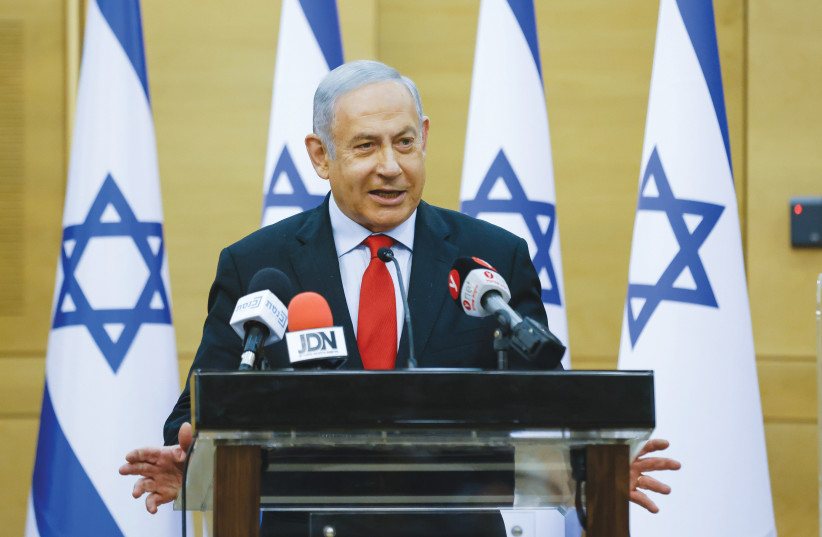Things tend to move slowly here in the Middle East. Traditions are kept, grudges are held, suspicions remain resilient and progress oozes ahead glacially in microscopic increments.
That’s why the statement on Tuesday by Ra’am (United Arab List) leader Mansour Abbas is so significant.
“Israel was born as a Jewish state. And that was the decision of the Jewish people, to establish a Jewish state. The question is not, What is the identity of the state? That’s how the state was born, and so it will remain,” said Abbas at a Globes conference, repeating a view he espoused last month in Arabic to the Kul al-Arab media outlet.
Abbas’s bold declaration diverges drastically from the traditionally held views of Arab parties in the Knesset that Israel should be a state of all its citizens, and not a Jewish state.
“This is the reality. The question is not about the state’s identity, but what the status of Arab citizens will be in it,” Abbas said, adding that although he had opposed the 2017 Nation-State Law, which legislated the state’s Jewish identity, it is an “illusion” to think that Israel isn’t a Jewish state.

The issue of the Jewish nature of Israel has been the crux of the ongoing conflict with the Palestinians. Former prime minister Benjamin Netanyahu held to the mantra that in order for there to ever be a two-state solution, Palestinians must recognize Israel as a Jewish state.
“Israel expects the Palestinians to recognize the State of Israel as the state of the Jewish people,” he said to every US president and secretary of state since he became prime minister.
Prime Minister Naftali Bennett hasn’t publicly adopted that stance, most likely because he’s even farther removed from the likelihood of entering negotiations with the Palestinians, amid his refusal to meet with Palestinian Authority President Mahmoud Abbas.
Still, the declaration by Mansour Abbas looms large as a potential turning point in how the Arab minority views the country.
The inclusion of Ra’am in the current coalition was already a turning point in Israel’s history. Its participation signified a pragmatic approach for Arab-Israeli leaders, one that focused on improving the lives of their constituency.
Abbas and his party campaigned on solving issues in Arab communities and improving the quality of life. Since then, as part of the coalition, he has secured budgets for an ambitious five-year plan for the Arab population – called Takadum (Progress) in Arabic – that tackles vital issues such as the uncontrolled gun violence in the Arab sector and a severe housing shortage.
That refreshing hands-on approach to leadership, which recognizes the reality and attempts to work within the system to improve constituents’ plights, unfortunately, hasn’t been adopted by Mansour’s fellow Arab lawmakers from other parties.
Joint List MK and Balad Party leader Sami Abou Shahadeh responded to Abbas’s statement on Jewish statehood by accusing him of “having a split personality.”
“The question of the status of the Palestinian minority in Israel is fundamentally tied to the definition of the state as a Jewish state. Only a state of all its citizens can bring about justice and full equality among all citizens,” Abou Shahadeh said.
Likewise, Joint List leader Ayman Odeh dismissed Abbas for giving in to the Jewish majority. “The question of the state’s identity should interest every citizen – Arab or Jew – who cares about peace and democracy,” he said.
Odeh, it seems, is living under the illusions that Abbas mentioned. Israel was indeed founded as a Jewish state, and that it shall remain, affording full rights and equal status to all its citizens. If that issue could be taken off the table, it would create so much more opportunity to address the real issues that affect all citizens of the country.
Mansour Abbas’s statement on Tuesday was long overdue from an Arab-Israeli leader, but it’s certainly most welcome. Let’s hope that other courageous leaders also come forward with similar declarations.
Sometimes small, incremental changes lead to seismic shifts in society. If this is indeed a turning point in the way the Arab citizens of Israel view their country. We can look back on Abbas’s statement as a game changer.
